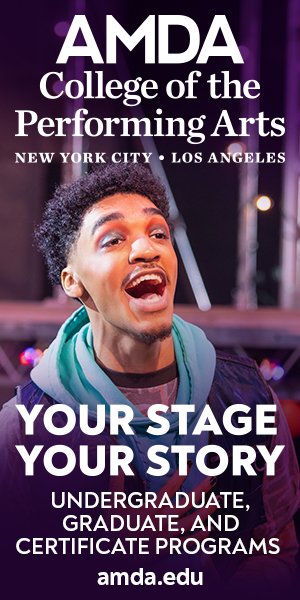

Black Broadway: The Early Years |
||
|
|
||
|
|
|
|
|
|
||
|
|
|
|
| The Chamber Philharmonia of New York | ||
| Chala Yancy (Concertmaster), Chrissy Fong, Setsuko Otake, Narek Arutyunian, Yuki Higashi, John Butcher, Clyde Daley, Jahi Alexander, Ethan Lucas, Gloria Lee, Savion Washington, Anna Majcherczyk, Luis E. Casal Rodriguez, Elizabeth Mandic-Nowac, Funda Cizmecioglu, Julia Birnbaum, Carol Gimbel, Aundrey Mitchell, Ta Allen, Theo Zimmerman, Wick Simmons, Garo Yellin, Anthony F. Morris, and Thomas Coote | ||
Follow Us:
Song List
“Oh, What a Beautiful City” (Vocalist: Stacey Sherrell) (African American Spiritual, Arrangement by Edward Boatner) Movement 1 Allegro Non Troppo
“Lord, How Come Me Here?” (Vocalist: Sailor Mayberry) 2. Lento (African American Spiritual)
“Ride on, King Jesus” (Vocalist: Stacey Sherrell) (Arranged by Hall Johnson) 3. Molto Vivace (African American Spiritual)
“Gospel Train” (Vocalist: Sailor Mayberry) 4. Vivace Ma Non Troppo (African American Spiritual)
Intermission
Will Marion Cook: “In Dahomey" Overture (1902) (Arranged by James Lamb)
James Reese Europe: "Castle House Rag" (1914)
Eubie Blake and Noble Sissle: “I’m Just Wild About Harry” from Shuffle Along (1921) (Vocalist: Sailor Mayberry)
Eubie Blake and Noble Sissle: "Love Will Find A Way” from Shuffle Along (1921) (Vocalist: Stacey Sherrell)
Eubie Blake and Noble Sissle: “Shuffle Along" Overture (1921)
Cast
Creative Team
Tali Makell
Cindy Sibilsky / INJOY Entertainment
Anthony F. Morris
Stephen Blauweiss
Shin Kurokawa
Meet the Company
Tali Makell
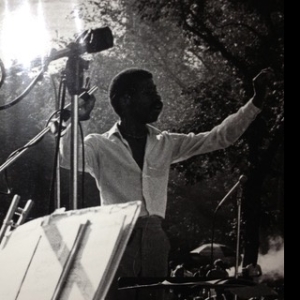 “Tali Makell has a crystal-clear baton technique and a passionate, yet completely controlled commitment to music.” (From “A Fine New Conductor Emerges” - NY Daily News, by Bill Zakariasen, on the occasion of Mr. Makell’s Lincoln Center debut)
Tali Makell is a native of Baltimore, Maryland, who has resided in Brooklyn, NY, for almost five decades. He studied at Peabody Conservatory (Prep Division), Oberlin Conservatory (B.A. Voice M.M. and Orchestral Conducting) and continued his Conducting Studies in New York with Maestros Laszlo Halasz and Semyon Vekshtein. Mr. Makell was the Principal Conductor for the NYCHA Symphony Orchestra from 1981 to 1995, Music Director for the Henry Street Opera Ensemble 1982-1985, an affiliate of the Exxon Conducting Program, and Associate Conductor with the Brooklyn Philharmonic 1987. From 1997-2002, Mr. Makell was the Summer Opera Theater Music Director at Brooklyn Music School.
In the early 1990s, he co-founded The Nietzsche Music Project (NMP), Inc., originally dedicated to performing and recording Friedrich Nietzsche's music. Three NMP events were held at the symposia of the International Nietzsche Colloquium in Sils Maria, Switzerland (1994, 1997, 2000), along with various appearances in NY (Goethe Haus 1994), Baltimore (Goucher College 1994), and Atlanta (Emory University 2003). In 2003, he produced additional recordings of Nietzsche’s music.
In 2008, Mr. Makell founded the Chamber Philharmonic of New York (CPNY), an off-shoot of NMP dedicated to performing music by NY composers, both native and foreign-born. The first project was a lecture/concert (2009) on Antonin Dvorak, The National Conservatory school's founding director (1892-1895), who supported and mentored Black, Indigenous, and female composers and new American music development. CPNY’s second concert event was a celebration of the contributions of Gustav Mahler to the musical life of early 20th-century New York on the centenary of his death (2011). His “Das Lied von der Erde” in the Schoenberg-Riehn version for chamber orchestra was the principal work of that concert held at the Church of the Heavenly Rest in Manhattan.
Mr. Makell served as Guest Conductor of the Harlem Chamber Players from 2012-2015. His tenure was highlighted by a 2014 performance of Mozart's Requiem at Harlem’s historic Convent Baptist Church. Following his time with the Harlem Chamber Players, he resumed extensive research and planning for the next series of 12 concerts and educational lecture demonstrations for NMP/CPNY. He recently wrote notable texts on Nietzsche’s contribution to classical music and cultural theory.
Mr. Makell took a hiatus from CPNY’s performances, lectures and concerts to focus on researching the next project, “Black Broadway: The Early Years. " This exploration of how Dvorak’s National Conservatory shaped early Broadway music, especially contributions by Black composers who shaped composers in Broadway’s Golden Years and today—the concert and lecture demonstration series debuts in New York City in 2024.
“Tali Makell has a crystal-clear baton technique and a passionate, yet completely controlled commitment to music.” (From “A Fine New Conductor Emerges” - NY Daily News, by Bill Zakariasen, on the occasion of Mr. Makell’s Lincoln Center debut)
Tali Makell is a native of Baltimore, Maryland, who has resided in Brooklyn, NY, for almost five decades. He studied at Peabody Conservatory (Prep Division), Oberlin Conservatory (B.A. Voice M.M. and Orchestral Conducting) and continued his Conducting Studies in New York with Maestros Laszlo Halasz and Semyon Vekshtein. Mr. Makell was the Principal Conductor for the NYCHA Symphony Orchestra from 1981 to 1995, Music Director for the Henry Street Opera Ensemble 1982-1985, an affiliate of the Exxon Conducting Program, and Associate Conductor with the Brooklyn Philharmonic 1987. From 1997-2002, Mr. Makell was the Summer Opera Theater Music Director at Brooklyn Music School.
In the early 1990s, he co-founded The Nietzsche Music Project (NMP), Inc., originally dedicated to performing and recording Friedrich Nietzsche's music. Three NMP events were held at the symposia of the International Nietzsche Colloquium in Sils Maria, Switzerland (1994, 1997, 2000), along with various appearances in NY (Goethe Haus 1994), Baltimore (Goucher College 1994), and Atlanta (Emory University 2003). In 2003, he produced additional recordings of Nietzsche’s music.
In 2008, Mr. Makell founded the Chamber Philharmonic of New York (CPNY), an off-shoot of NMP dedicated to performing music by NY composers, both native and foreign-born. The first project was a lecture/concert (2009) on Antonin Dvorak, The National Conservatory school's founding director (1892-1895), who supported and mentored Black, Indigenous, and female composers and new American music development. CPNY’s second concert event was a celebration of the contributions of Gustav Mahler to the musical life of early 20th-century New York on the centenary of his death (2011). His “Das Lied von der Erde” in the Schoenberg-Riehn version for chamber orchestra was the principal work of that concert held at the Church of the Heavenly Rest in Manhattan.
Mr. Makell served as Guest Conductor of the Harlem Chamber Players from 2012-2015. His tenure was highlighted by a 2014 performance of Mozart's Requiem at Harlem’s historic Convent Baptist Church. Following his time with the Harlem Chamber Players, he resumed extensive research and planning for the next series of 12 concerts and educational lecture demonstrations for NMP/CPNY. He recently wrote notable texts on Nietzsche’s contribution to classical music and cultural theory.
Mr. Makell took a hiatus from CPNY’s performances, lectures and concerts to focus on researching the next project, “Black Broadway: The Early Years. " This exploration of how Dvorak’s National Conservatory shaped early Broadway music, especially contributions by Black composers who shaped composers in Broadway’s Golden Years and today—the concert and lecture demonstration series debuts in New York City in 2024.
Michael Dinwiddie
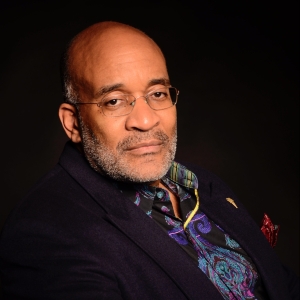 Michael Dinwiddie is a creative entrepreneur whose projects span film, theatre and music. In Hollywood, he worked as a staff writer on the ABC-Lorimar TV hit series Hangin’ With Mr. Cooper and was an inaugural Fellow at Touchstone Pictures in the Walt Disney Writers Program. A professor of dramatic writing at NYU’s Gallatin School of Individualized Study, Michael has also served as playwright-in-residence at Michigan State University, Florida A&M University, St. Louis University, and La Universidad de Palermo in Buenos Aires, among others.
For over a decade, he taught playwriting in Woodie King, Jr.’s New Federal Theatre Workshop. Michael’s produced plays include The Beautiful LaSalles, Mood Ellington, A Guest of Honor, Masque, Dacha, Original Rags, Liferoses, Northern Lights ’66, Cotton Club Rhapsody, and Hannibal of the Alps. His awards include a National Endowment for the Arts Fellowship in Playwriting, the Hal Youngblood in Playwriting from the Furay Theatre Festival, the 2023 NYU Martin Luther King Humanitarian Award, and the Spirit Award for Institution Building from Dr. Barbara Ann Teer’s National Black Theatre.
He is a contributing editor to Black Masks Magazine, and he has published articles and lectured on the Harlem Renaissance, ragtime music, African American theatre, and spoken word/rap/popular culture.
In 2022, the Black Liberated Art Center (BLAC Inc.) established the Michael Dinwiddie Playwright Award for promising dramatists. Michael is the editor of On Holy Ground: An Anthology of Plays and Monologues from the National Black Theatre Festival, which was published by the Theatre Communications Group in 2022.
He has served on the boards of the Classical Theatre of Harlem, the New Federal Theatre, the Duke Ellington Center for the Arts, the College of Fellows of the American Theatre, NewFest LGBTQ+ Film and Media, and the Black Gotham Experience. He is the president of the August Wilson Society and a long-time consultant to the Black Theatre Network (BTN).
Michael’s current project as curator is Black Joy: African American Musicals, which is slated to open in September 2025 at the New York Library for the Performing Arts.
Michael Dinwiddie is a creative entrepreneur whose projects span film, theatre and music. In Hollywood, he worked as a staff writer on the ABC-Lorimar TV hit series Hangin’ With Mr. Cooper and was an inaugural Fellow at Touchstone Pictures in the Walt Disney Writers Program. A professor of dramatic writing at NYU’s Gallatin School of Individualized Study, Michael has also served as playwright-in-residence at Michigan State University, Florida A&M University, St. Louis University, and La Universidad de Palermo in Buenos Aires, among others.
For over a decade, he taught playwriting in Woodie King, Jr.’s New Federal Theatre Workshop. Michael’s produced plays include The Beautiful LaSalles, Mood Ellington, A Guest of Honor, Masque, Dacha, Original Rags, Liferoses, Northern Lights ’66, Cotton Club Rhapsody, and Hannibal of the Alps. His awards include a National Endowment for the Arts Fellowship in Playwriting, the Hal Youngblood in Playwriting from the Furay Theatre Festival, the 2023 NYU Martin Luther King Humanitarian Award, and the Spirit Award for Institution Building from Dr. Barbara Ann Teer’s National Black Theatre.
He is a contributing editor to Black Masks Magazine, and he has published articles and lectured on the Harlem Renaissance, ragtime music, African American theatre, and spoken word/rap/popular culture.
In 2022, the Black Liberated Art Center (BLAC Inc.) established the Michael Dinwiddie Playwright Award for promising dramatists. Michael is the editor of On Holy Ground: An Anthology of Plays and Monologues from the National Black Theatre Festival, which was published by the Theatre Communications Group in 2022.
He has served on the boards of the Classical Theatre of Harlem, the New Federal Theatre, the Duke Ellington Center for the Arts, the College of Fellows of the American Theatre, NewFest LGBTQ+ Film and Media, and the Black Gotham Experience. He is the president of the August Wilson Society and a long-time consultant to the Black Theatre Network (BTN).
Michael’s current project as curator is Black Joy: African American Musicals, which is slated to open in September 2025 at the New York Library for the Performing Arts.
Stacey Sherrell
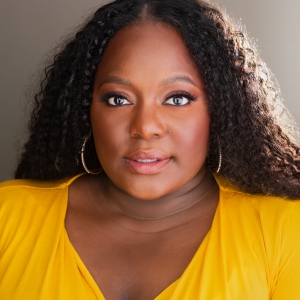 Stacey is a proud native of South Carolina and a distinguished graduate of both the renowned Governor's School for the Arts and Humanities and the prestigious Juilliard School. At Juilliard, she earned a Bachelor of Fine Arts in Drama and was honored with the Michel and Suria Saint-Denis Prize for her exceptional leadership and artistic achievements.
Stacey is a dedicated member of SAG-AFTRA and the Actor’s Equity Association, showcasing her talent on both stage and screen. Currently, she leads the Education and Community Engagement Department for The Classical Theatre of Harlem. She is also the founder and owner of "Setting Your Stage," a premier acting and performance coaching company that empowers aspiring artists to reach their full potential.
She is excited to share her talents and joy through Black Broadway: The Early Years! www.staceysherrellstudios.com
Stacey is a proud native of South Carolina and a distinguished graduate of both the renowned Governor's School for the Arts and Humanities and the prestigious Juilliard School. At Juilliard, she earned a Bachelor of Fine Arts in Drama and was honored with the Michel and Suria Saint-Denis Prize for her exceptional leadership and artistic achievements.
Stacey is a dedicated member of SAG-AFTRA and the Actor’s Equity Association, showcasing her talent on both stage and screen. Currently, she leads the Education and Community Engagement Department for The Classical Theatre of Harlem. She is also the founder and owner of "Setting Your Stage," a premier acting and performance coaching company that empowers aspiring artists to reach their full potential.
She is excited to share her talents and joy through Black Broadway: The Early Years! www.staceysherrellstudios.com
Sailor Raine Mayberry
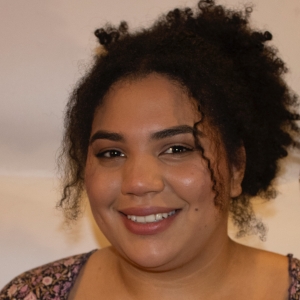 Sailor Raine Mayberry is a passionate musical theater enthusiast originally from Austin, Texas. With professional training from the New York Film Academy, Sailor has honed her skills in performance and storytelling. She is best known as a worship leader across Texas, where her vibrant energy and heartfelt connections resonate deeply with audiences. Sailor continues to explore new creative avenues while inspiring others through her love of music and theater.
Sailor Raine Mayberry is a passionate musical theater enthusiast originally from Austin, Texas. With professional training from the New York Film Academy, Sailor has honed her skills in performance and storytelling. She is best known as a worship leader across Texas, where her vibrant energy and heartfelt connections resonate deeply with audiences. Sailor continues to explore new creative avenues while inspiring others through her love of music and theater.
Chrissy Fong
Setsuko Otake
Narek Arutyunian
Yuki Higashi
Joshua Butcher
Clyde Daley
Jahi Alexander
Ethan Lucas
Chala Yancy
Gloria Lee
Savion Washington
Anna Majcherczyk
Luis E. Casal Rodriguez
Elizabeth Mandic-Nowac
Funda Cizmecioglu
Julia Birnbaum
Carol Gimbel
Aundrey Mitchell
Tia Allen
Theo Zimmerman
Halie Morris
Garo Yellin
Anthony F. Morris
Thomas Coote
Tali Makell
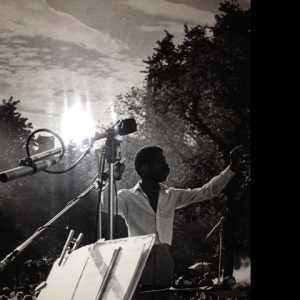 “Tali Makell has a crystal-clear baton technique and a passionate, yet completely controlled commitment to music.” (From “A Fine New Conductor Emerges” - NY Daily News, by Bill Zakariasen, on the occasion of Mr. Makell’s Lincoln Center debut)
Tali Makell is a native of Baltimore, Maryland, who has resided in Brooklyn, NY, for almost five decades. He studied at Peabody Conservatory (Prep Division), Oberlin Conservatory (B.A. Voice M.M. and Orchestral Conducting) and continued his Conducting Studies in New York with Maestros Laszlo Halasz and Semyon Vekshtein. Mr. Makell was the Principal Conductor for the NYCHA Symphony Orchestra from 1981 to 1995, Music Director for the Henry Street Opera Ensemble 1982-1985, an affiliate of the Exxon Conducting Program, and Associate Conductor with the Brooklyn Philharmonic 1987. From 1997-2002, Mr. Makell was the Summer Opera Theater Music Director at Brooklyn Music School.
In the early 1990s, he co-founded The Nietzsche Music Project (NMP), Inc., originally dedicated to performing and recording Friedrich Nietzsche's music. Three NMP events were held at the symposia of the International Nietzsche Colloquium in Sils Maria, Switzerland (1994, 1997, 2000), along with various appearances in NY (Goethe Haus 1994), Baltimore (Goucher College 1994), and Atlanta (Emory University 2003). In 2003, he produced additional recordings of Nietzsche’s music.
In 2008, Mr. Makell founded the Chamber Philharmonic of New York (CPNY), an off-shoot of NMP dedicated to performing music by NY composers, both native and foreign-born. The first project was a lecture/concert (2009) on Antonin Dvorak, The National Conservatory school's founding director (1892-1895), who supported and mentored Black, Indigenous, and female composers and new American music development. CPNY’s second concert event was a celebration of the contributions of Gustav Mahler to the musical life of early 20th-century New York on the centenary of his death (2011). His “Das Lied von der Erde” in the Schoenberg-Riehn version for chamber orchestra was the principal work of that concert held at the Church of the Heavenly Rest in Manhattan.
Mr. Makell served as Guest Conductor of the Harlem Chamber Players from 2012-2015. His tenure was highlighted by a 2014 performance of Mozart's Requiem at Harlem’s historic Convent Baptist Church. Following his time with the Harlem Chamber Players, he resumed extensive research and planning for the next series of 12 concerts and educational lecture demonstrations for NMP/CPNY. He recently wrote notable texts on Nietzsche’s contribution to classical music and cultural theory.
Mr. Makell took a hiatus from CPNY’s performances, lectures and concerts to focus on researching the next project, “Black Broadway: The Early Years. " This exploration of how Dvorak’s National Conservatory shaped early Broadway music, especially contributions by Black composers who shaped composers in Broadway’s Golden Years and today—the concert and lecture demonstration series debuts in New York City in 2024.
“Tali Makell has a crystal-clear baton technique and a passionate, yet completely controlled commitment to music.” (From “A Fine New Conductor Emerges” - NY Daily News, by Bill Zakariasen, on the occasion of Mr. Makell’s Lincoln Center debut)
Tali Makell is a native of Baltimore, Maryland, who has resided in Brooklyn, NY, for almost five decades. He studied at Peabody Conservatory (Prep Division), Oberlin Conservatory (B.A. Voice M.M. and Orchestral Conducting) and continued his Conducting Studies in New York with Maestros Laszlo Halasz and Semyon Vekshtein. Mr. Makell was the Principal Conductor for the NYCHA Symphony Orchestra from 1981 to 1995, Music Director for the Henry Street Opera Ensemble 1982-1985, an affiliate of the Exxon Conducting Program, and Associate Conductor with the Brooklyn Philharmonic 1987. From 1997-2002, Mr. Makell was the Summer Opera Theater Music Director at Brooklyn Music School.
In the early 1990s, he co-founded The Nietzsche Music Project (NMP), Inc., originally dedicated to performing and recording Friedrich Nietzsche's music. Three NMP events were held at the symposia of the International Nietzsche Colloquium in Sils Maria, Switzerland (1994, 1997, 2000), along with various appearances in NY (Goethe Haus 1994), Baltimore (Goucher College 1994), and Atlanta (Emory University 2003). In 2003, he produced additional recordings of Nietzsche’s music.
In 2008, Mr. Makell founded the Chamber Philharmonic of New York (CPNY), an off-shoot of NMP dedicated to performing music by NY composers, both native and foreign-born. The first project was a lecture/concert (2009) on Antonin Dvorak, The National Conservatory school's founding director (1892-1895), who supported and mentored Black, Indigenous, and female composers and new American music development. CPNY’s second concert event was a celebration of the contributions of Gustav Mahler to the musical life of early 20th-century New York on the centenary of his death (2011). His “Das Lied von der Erde” in the Schoenberg-Riehn version for chamber orchestra was the principal work of that concert held at the Church of the Heavenly Rest in Manhattan.
Mr. Makell served as Guest Conductor of the Harlem Chamber Players from 2012-2015. His tenure was highlighted by a 2014 performance of Mozart's Requiem at Harlem’s historic Convent Baptist Church. Following his time with the Harlem Chamber Players, he resumed extensive research and planning for the next series of 12 concerts and educational lecture demonstrations for NMP/CPNY. He recently wrote notable texts on Nietzsche’s contribution to classical music and cultural theory.
Mr. Makell took a hiatus from CPNY’s performances, lectures and concerts to focus on researching the next project, “Black Broadway: The Early Years. " This exploration of how Dvorak’s National Conservatory shaped early Broadway music, especially contributions by Black composers who shaped composers in Broadway’s Golden Years and today—the concert and lecture demonstration series debuts in New York City in 2024.
Cindy Sibilsky / INJOY Entertainment
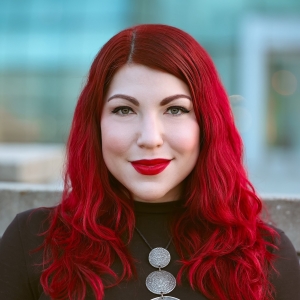 Cindy Sibilsky is an international producer, writer, marketing director, publicist and artist relations manager based in NYC. She focuses on meaningful global cultural exchange and has two decades of experience working on Broadway and Off-Broadway, on US and international tours, and with organizations such as La MaMa ETC, The Rubin Museum of Art, Brooklyn Academy of Music (BAM), HAU, New York Live Arts and National Sawdust.
In 2011, Sibilsky formed INJOY Entertainment LLC, a theatrical production company specializing in producing, touring, artist/show management, marketing/advertising/PR, consultancy and multimedia needs for performing and visual arts. INJOY has a diverse and constantly growing roster of clients, companies and shows, including theatre, musicals, dance, cirque, Drag, cabaret, concerts, curated art shows, public art, and immersive performances. Highlights include producing and managing multiple shows and festivals in Brooklyn, Off-Broadway, Broadway, Edinburgh Fringe, and for US and international tours.
She is also a prolific writer and reviewer with hundreds of published works about arts, culture, and travel that can be seen in many publications, including internationally, and have been translated into Arabic, Spanish, Japanese, and Chinese. In 2019, she was guest editor, curator, and lead writer for American Theatre Magazine’s special edition on Japanese contemporary theatre.
Sibilsky is the Founding Producer of the New York Arab Festival (NYAF, founded in 2022 to honor Arab American Heritage Month), an annual multi-genre, multi-venue celebration of Arab and Arab American artists from all artistic disciplines presented with multiple partners in venues across all boroughs of NYC and powered by Wizara and HaRaKa Platform. Her other work with Wizara and HaRaKa Platform includes a bespoke theatrical walking tour inspired by the Incense Road, “Of Myrrh and Silver,” and Living in Color Art Walks, both in AlUla, Saudi Arabia, and MENA/Live Ideas festival at New York Live Arts.
She produces, tours, represents or works with Compagnia de' Colombari (USA/Italy), Hari Krishnan (USA/International), DRUMSTRUCK (South Africa), Constanza Macras' DorkyPark (Berlin), Flying Bach (Berlin), Circus Abyssinia (Ethiopia), Cirque-tacular (USA), Eryc Taylor Dance (USA), Nietzsche Music Project, (USA), Music in the Barns (USA/Canada), Oriana Peron (USA) and others.
Sibilsky is also a member of APAP, ISPA, StageOne London, and The Fringe Society and is the Conferences Initiatives Leader for CIPA (Creative and Independent Producers Alliance).
Cindy Sibilsky is an international producer, writer, marketing director, publicist and artist relations manager based in NYC. She focuses on meaningful global cultural exchange and has two decades of experience working on Broadway and Off-Broadway, on US and international tours, and with organizations such as La MaMa ETC, The Rubin Museum of Art, Brooklyn Academy of Music (BAM), HAU, New York Live Arts and National Sawdust.
In 2011, Sibilsky formed INJOY Entertainment LLC, a theatrical production company specializing in producing, touring, artist/show management, marketing/advertising/PR, consultancy and multimedia needs for performing and visual arts. INJOY has a diverse and constantly growing roster of clients, companies and shows, including theatre, musicals, dance, cirque, Drag, cabaret, concerts, curated art shows, public art, and immersive performances. Highlights include producing and managing multiple shows and festivals in Brooklyn, Off-Broadway, Broadway, Edinburgh Fringe, and for US and international tours.
She is also a prolific writer and reviewer with hundreds of published works about arts, culture, and travel that can be seen in many publications, including internationally, and have been translated into Arabic, Spanish, Japanese, and Chinese. In 2019, she was guest editor, curator, and lead writer for American Theatre Magazine’s special edition on Japanese contemporary theatre.
Sibilsky is the Founding Producer of the New York Arab Festival (NYAF, founded in 2022 to honor Arab American Heritage Month), an annual multi-genre, multi-venue celebration of Arab and Arab American artists from all artistic disciplines presented with multiple partners in venues across all boroughs of NYC and powered by Wizara and HaRaKa Platform. Her other work with Wizara and HaRaKa Platform includes a bespoke theatrical walking tour inspired by the Incense Road, “Of Myrrh and Silver,” and Living in Color Art Walks, both in AlUla, Saudi Arabia, and MENA/Live Ideas festival at New York Live Arts.
She produces, tours, represents or works with Compagnia de' Colombari (USA/Italy), Hari Krishnan (USA/International), DRUMSTRUCK (South Africa), Constanza Macras' DorkyPark (Berlin), Flying Bach (Berlin), Circus Abyssinia (Ethiopia), Cirque-tacular (USA), Eryc Taylor Dance (USA), Nietzsche Music Project, (USA), Music in the Barns (USA/Canada), Oriana Peron (USA) and others.
Sibilsky is also a member of APAP, ISPA, StageOne London, and The Fringe Society and is the Conferences Initiatives Leader for CIPA (Creative and Independent Producers Alliance).
Anthony F. Morris
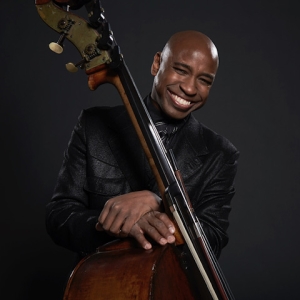 Anthony Morris was the principal auxiliary and toured internationally with The New York Philharmonic from 1999 to 2006 under the batons of Kurt Masur and Lorin Maazel. He has also played on shows such as Beauty and the Beast and Phantom of the Opera. Mr. Morris has been subbing with the New Jersey Symphony Orchestra since 2008. When not playing with NJSO, Mr. Morris plays with many orchestras in the tri-state area, including the Harlem Chamber Players, Spectrum Symphony, and musical lectures with Musica de Camera, to name a few. As for teaching, he is the Professor of Classical Double Bass Performance at Brooklyn College, a teaching artist at Cicely Tyson School of Performing and Fine Arts in NJ and the Head Teaching Artist at InterSchool Orchestras of New York. He holds a BMA from the Manhattan School of Music and an MMA from the Juilliard School of Music.
Anthony Morris was the principal auxiliary and toured internationally with The New York Philharmonic from 1999 to 2006 under the batons of Kurt Masur and Lorin Maazel. He has also played on shows such as Beauty and the Beast and Phantom of the Opera. Mr. Morris has been subbing with the New Jersey Symphony Orchestra since 2008. When not playing with NJSO, Mr. Morris plays with many orchestras in the tri-state area, including the Harlem Chamber Players, Spectrum Symphony, and musical lectures with Musica de Camera, to name a few. As for teaching, he is the Professor of Classical Double Bass Performance at Brooklyn College, a teaching artist at Cicely Tyson School of Performing and Fine Arts in NJ and the Head Teaching Artist at InterSchool Orchestras of New York. He holds a BMA from the Manhattan School of Music and an MMA from the Juilliard School of Music.
Stephen Blauweiss
Shin Kurokawa
Nietzsche Music Project and Chamber Philharmonia of New York, in Association with INJOY Entertainment, proudly present the world premiere of BLACK BROADWAY: THE EARLY YEARS at Roulette (509 Atlantic Avenue, Brooklyn) on Sunday, October 27 at 7pm (doors open at 6pm).
BLACK BROADWAY: THE EARLY YEARS is a concert and multimedia exploration of the National Conservatory of Music of America's influences on early Broadway music under the leadership of Antonin Dvořák (director from 1892-1895). The performance pays special tribute to contributions by Black composers (Will Marion Cook, James Reese Europe, Noble Sissle & Eubie Blake) whose work influenced Broadway’s Golden Years through today.
In BLACK BROADWAY: THE EARLY YEARS, a 24-piece orchestra and guest vocalists Stacey Sherrell and Sailor Mayberry will perform Dvořák's American String Quartet intermixed with African American Spirituals, which inspired early Black Broadway composers, Dvořák, and multiple styles such as Gospel and Ragtime. Conductor and Music Director Tali Makell will present a multimedia video introducing the first act, focusing on Dvořák and the National Conservatory. Scholar and author Michael Dinwiddie will introduce the second act, focusing on early Black Broadway and featuring music by Will Marion Cook, James Reese Europe, Sissle & Blake.
The National Conservatory of Music of America (founded in 1885 by socialite Jeannette Thurber) was a racially and gender-integrated organization that trained prominent American composers and their teachers. Dvořák's belief that contributions from Black or Indigenous Americans and immigrants were essential to new American music shifted interest in musical innovations toward New York City. This was echoed in the music of early Broadway through to contemporary times. Several National Conservatory students produced all-Black musicals on Broadway and became mentors for Duke Ellington and other greats. One professor taught Aaron Copland and George Gershwin. Founder Jeannette Thurber championed women and people of color, supported inclusivity toward disabled people and offered full scholarships. She advocated for federal funding of the arts, which was common in Europe but unheard of in the United States at the time.
Through amplifying and honoring these significant historical figures who contributed to New York’s music and culture of yesteryear, many of whom are lesser-known to modern audiences, BLACK BROADWAY: THE EARLY YEARS aims to showcase shared links and influences from past New Yorkers to spark inspiration and foster connections between today’s New York creatives.
Black Broadway: The Early Years and Nietzsche Music Project Inc. programs are made possible in part by the New York State Council on the Arts with the generous support of the Office of the Governor and the New York State Legislature, the Greater New York Arts Development Fund of the New York City Department of Cultural Affairs, administered by Brooklyn Arts Council (BAC), The Buckhorn Association of Brooklyn, and our donors—special thanks to Leatrice Gochberg and Nietzche Music Project's supportive board.

